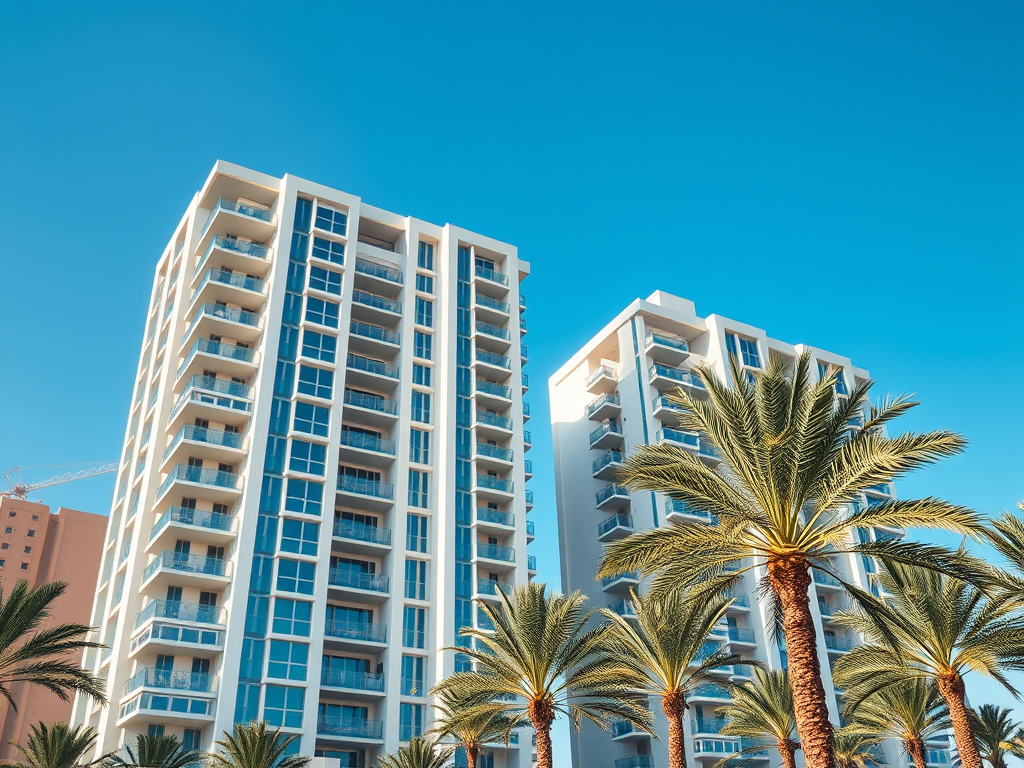Investing in off-plan properties in Dubai can be a lucrative venture, but it requires knowledge of the financial landscape. Off-plan properties refer to real estate projects that have yet to be completed. Financing these properties involves a variety of options tailored for investors. This article will guide you through the various methods to finance an off-plan property in Dubai, outlining essential steps, financial mechanisms, and tips to facilitate your investment journey.
Understanding Off-Plan Properties

Before considering financing options, it’s crucial to understand what off-plan properties entail. These are properties sold before completion, allowing buyers to invest early and take advantage of potentially lower prices. This approach can yield significant returns as the market values increase once construction is complete. However, it’s important to weigh the risks, including market fluctuations and project delays. Generally, off-plan properties in Dubai are popular due to the emirate’s booming real estate market, world-class developments, and favorable government policies. Understanding these fundamentals will help you make informed decisions about your investment strategy.
Ways to Finance Off-Plan Properties

There are several financing avenues available for purchasing off-plan properties in Dubai. Each method varies in terms of requirements, interest rates, and repayment structures.
- Mortgage from Banks: Many banks in Dubai offer specific mortgage products for off-plan purchases. You typically need to pay a deposit ranging from 10% to 30% to secure the property.
- Developer Financing: Some developers provide their own financing options, allowing buyers to pay in installments during the construction phase. This can be advantageous with lower interest rates.
- Cash Purchase: If you have the available funds, purchasing in cash can simplify the process and often gives you leverage in negotiations.
- Investment Partnerships: Partnering with other investors can help you pool resources. This may also provide access to properties that would be difficult to afford individually.
- Personal Loans: In some cases, individuals opt for personal loans to supplement their financing, although this may come with higher interest rates.
The Mortgage Process Explained
Getting a mortgage for an off-plan property involves a specific but manageable process. Here’s a breakdown of the steps involved:
- Pre-Approval: Contact various banks to get pre-approved for a mortgage. This process typically involves submitting financial documents to assess your creditworthiness.
- Choosing the Right Property: Select an off-plan property that meets your investment criteria. Check the developer’s track record for timely completion of projects.
- Submitting a Mortgage Application: Once you’ve identified a property, submit a formal mortgage application to your bank, including details of the property and your financial information.
- Property Valuation: The bank will conduct a valuation of the property to ensure it aligns with the mortgage amount requested.
- Final Approval and Signing: After approval, sign the mortgage contract and proceed with the payment to the developer.
Advantages and Risks of Investing in Off-Plan Properties
As with any investment, financing an off-plan property comes with potential advantages and risks you should carefully consider.
- Advantages:
- Potential for capital appreciation as the property is completed.
- Flexible payment plans often offered by developers.
- Lower initial investment costs compared to completed properties.
- Risks:
- Market downturns can impact property values upon completion.
- Delays in construction can affect planned investments.
- Non-transparency from some developers may pose risks.
Tips for Successful Financing
To enhance your financing process, here are some essential tips to consider:
- Thorough Market Research: Understand the current market trends in Dubai. Analyze previous developments and their returns.
- Consult Real Estate Experts: Work with experienced real estate agents who are familiar with the off-plan market.
- Seek Financial Advice: Consult financial advisors to create a realistic budget and assess your financing options.
- Read Contracts Carefully: Always examine contracts or agreements to ensure you understand the terms and conditions set by developers or banks.
- Plan for Contingencies: Be prepared for potential delays and have a financial cushion to manage expected unforeseen circumstances.
Conclusion
Financing an off-plan property in Dubai can be a strategic move for investors looking to capitalize on the emirate’s real estate market. By understanding the various financing options, being diligent in your research, and carefully navigating the mortgage process, you can set yourself up for success. Remember to weigh the advantages and risks thoughtfully, and don’t hesitate to seek professional advice when necessary. With the right approach, purchasing an off-plan property could be a rewarding addition to your investment portfolio.
Frequently Asked Questions
1. What is an off-plan property?
Off-plan properties are real estate developments that are sold before completion, allowing buyers to invest early in anticipation of future price increases.
2. Can I get a mortgage for an off-plan property?
Yes, many banks in Dubai offer specific mortgage products for off-plan properties, with varying down payment requirements and interest rates.
3. What are the risks associated with off-plan investments?
Risks include potential market downturns, construction delays, and non-transparency from developers, which can affect the completion and value of the property.
4. Is it cheaper to buy an off-plan property?
Often, yes. Off-plan properties can be less expensive than completed ones, allowing for potential capital appreciation as the project is completed.
5. Should I consult a financial advisor before investing?
Yes, consulting a financial advisor is highly recommended to assess your financial situation, budget, and financing options for the best investment strategy.
